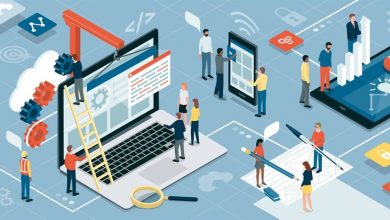Logistics Technology: A Complete Guide About Why Do Businesses Need Logistics Technology?

Logistics
Today, logistics refers to the movement of supplies and finished goods with high reliability. Designed specifically for the logistics industry, the CartonCloud warehouse and transport management system help you overcome common issues, streamline operations, and grow. The terms logistics and supply chain are sometimes used interchangeably, but logistics is an integral part of the supply chain.
A logistics function involves moving goods from one place to another. Warehousing and transportation are two of them. Producing and distributing goods requires a sequence of processes, including logistics, on the part of businesses and organizations.
Why do businesses need logistics technology?
A growing number of businesses are moving goods around the world, and customers or clients expect a better customer experience, so new types of transport technology are required.
In order to increase efficiency, businesses use logistics technology and systems that help them perform multiple tasks from beginning to end. Customers view supply chain and transportation technology as an end-to-end business function instead of a supply chain function.
In many businesses, multiple logistics applications are run simultaneously as various modes of transportation, posing a difficult challenge to the transportation and distribution system. Businesses need a transportation technology solution that can be applied to multiple industries and geographies to integrate the supply chain into their business strategy.
What is Last Mile Logistics?
Logistics at the last mile refers to the previous step of a delivery process from the distribution center to the end-user. The last mile is the final stretch of a delivery journey, and it can range from a few blocks to more than 100 miles, according to Supply and Demand Chain Executive Carrie Mantey. Last-mile logistics typically uses parcel carriers or small package carriers to deliver products to consumers.
Approximately ten years from now, the e-commerce market in mature markets will double in value to more than $83 billion. As a result, shippers of all sizes have identified last-mile logistics as the cornerstone of growth and profitability.
Benefits of Logistics technology
A business’s cash flow is driven by its goods movement, so logistics management should be a primary concern. Logistics management affects the bottom line of a company, for better or worse. It shouldn’t be left to chance. A logistics management system can provide the following benefits.
Transparency
It is possible to gain a better understanding of the supply chain through logistics management. Using this approach, businesses can better control costs, find efficiencies, spot supply chain issues, conduct demand planning, and gain insight into market opportunities.
Enhanced customer experience
It is the excellent customer experience (CX) that drives repeat business. Delivering orders accurately and quickly enhances the customer experience, increasing brand loyalty and sales in the future.
Conclusion
We discussed all of why businesses need logistic technology. Staying on top of the latest technology requires time and investment. It cannot be evident for shippers when it comes to identifying which logistics technology will significantly impact their ability to remain competitive now and in the future.





